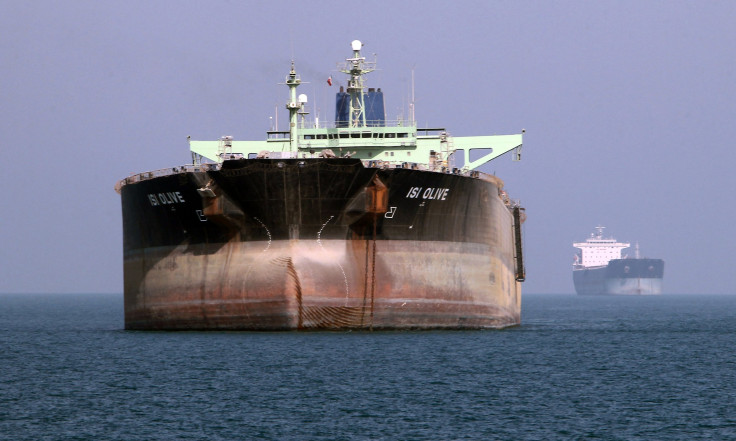Western Companies Eyeing Opportunities In Iran Should Sanctions Ease

As Iran and six world powers approach a July 20 deadline to negotiate limits to Iran’s nuclear program, global companies are meeting with potential Iranian partners and considering restarting operations there if sanctions are lifted.
The isolated economy could become the largest market in the Middle East, with nearly 80 million people, most under 30 and well-educated, and the fourth-largest oil reserves and second-largest proven gas reserves in the world, according to the U.S. Energy Information Administration.
Energy companies Total SA (NYSE:TOT) of France, Royal Dutch Shell (NYSE:RDS.A) and Eni (NYSE:E) of Italy, French carmaker PSA Peugeot Citroen (UG:EN) and financial firms Deutsche Bank (NYSE:DB) and Russia’s Renaissance Capital Ltd. (NASDAQ:RCG) are among those that are considering investment in Iran, according to the Wall Street Journal.
Oil companies in particular are eyeing the country. Senior executives from Total, Shell and Eni, three companies that had major oil operations in Iran before the sanctions were imposed nearly a decade ago, have met with Iran’s Oil Ministry to discuss potential returns if sanctions are lifted. In January, the Oil Ministry invited several large oil companies to return to Iran, including Total, Shell, Eni, Norway’s Statoil (NYSE:STO), Britain’s BP (NYSE:BP) and U.S. companies Exxon Mobil (NYSE:XOM) and ConocoPhillips (NYSE:COP).
The U.S. and Iran have talked of cooperating to stifle the Sunni extremist revolt in Iraq, but officials have said the sides are far from agreeing on a nuclear settlement. Iran doesn’t want to reduce its nuclear infrastructure to the levels demanded. In response, the U.S., United Nations and European Union have strangled the Iranian economy with sanctions — cutting the country’s oil revenues in half, for example — for what they see as Iran’s ambitions to develop an atomic bomb. Iran denies it is building up nuclear arms.
BP was the first to pump oil from Iran at the beginning of the 1900s, helping fuel Britain’s economy from the 1920s to the 1940s before World War II inspired Iranian nationalism. In the 1950s, Iran nationalized its oil sector in an attempt to keep the profits inside the country, and with the Islamic Revolution in 1979, threw out Western oil companies. Then under reforms in the 1990s, many oil companies came back to Iran, including Total in ’97 and Shell in ’99, despite U.S. sanctions prohibiting such business. Total, Europe’s third-largest oil company, pumped oil from Iran’s giant South Pars field until tighter U.S. sanctions made it impossible in 2009.
Shell’s oil operations signed in 1999 became fully operational in 2005, and it signed another deal in 2007 to develop natural gas in the South Pars field and build a liquefied natural gas plant, but that deal was delayed several times. Eventually, Shell decided to sell gasoline to Iran instead, anticipating the need for a quick exit strategy with looming sanctions, and began purchasing Iranian crude, taking final deliveries in April 2012. Shell still owes Iran’s national oil company about $2.3 billion for purchases of Iranian crude because sanctions complicated payment processes, according to recent court documents.
Eni came to Iran in the early 2000s and has continued operating there throughout sanctions under exemptions, helping develop four oil and gas fields, and the U.K. government granted BP permission in October to restart production that had halted in 2010 due to international sanctions.
An agreement in November unfroze about $4 billion of Iran’s oil assets and eased some sanctions, and an agreement in July could lift more sanctions on Iran’s central bank and loosen restrictions on the finance, energy and technology sectors. That would free Western companies to pursue investments in potentially high-growth industries, though some U.S. sanctions would likely remain regarding Iran’s alleged support for international terrorism and human rights abuses.
The drop in foreign investment from the West has been more-than-filled by China, Turkey and Russia. According to the U.N. Conference on Trade and Development, direct foreign investment in Iran has risen over the past decade, reaching $5 billion in 2012. However, that's still short the $7 billion Iran had projected for that year, and as the country grows, it will need more foreign cash.
Since taking office in August, President Hassan Rouhani has sent business diplomats into Europe and Asia to attract investment, particularly in oil, to Iran. Oil Minister Bijan Zanganeh has said that Iran could quickly boost output by 700,000 barrels a day if sanctions are lifted, the Times of Oman reported.
The round of nuclear talks resumes Wednesday in Vienna. Officials have said the deadline could be pushed another six months, and Zanganeh has said if the deadline isn’t met, the government will still push to increase oil production.
© Copyright IBTimes 2025. All rights reserved.






















